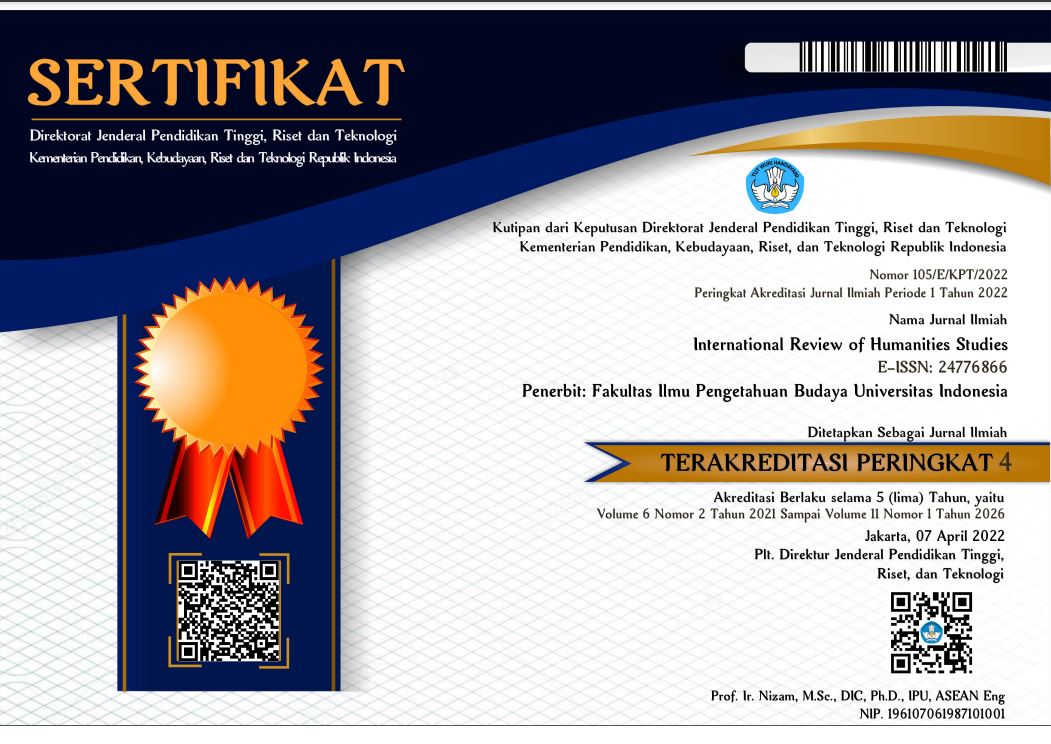International Review of Humanities Studies

Abstract
"This article examines the establishment of Jakarta International School (JIS) within the context of the globalisation of Indonesia. Established in 1951 under the name International School of Djakarta by Antoinette Stepanek, an educator from the United States, it was the first school to provide an English-language education for the children of expatriates in Jakarta, Indonesia. The school underwent several name changes throughout its history. In 1965, the school was renamed to Joint Embassy School to reflect the support from a coalition of embassies, consisting of the United States, United Kingdom, Australia and Yugoslavia. In 1978, the school was renamed again to Jakarta International School as it expanded and welcomed students from a broader international community. Finally, in 2014, it was again renamed to Jakarta Intercultural School aligning with Indonesian regulations restricting the use of the word “international” in school names. The establishment of JIS reflects globalisation and internationalism in Indonesia, particularly in the post-World War II and early post-independence context. JIS was founded to serve the children of expatriates such as diplomats, foreign businesspeople and development workers who had come to Indonesia following its internationally recognized independence in the late 1940s and early 1950s. The school itself is a symbol of international cooperation, and its establishment reflects Indonesia’s openness to international collaboration and the broader global trend of international schooling to support global mobility. From its modest beginnings in a house in Kebun Sirih to becoming the most recognized and renowned international education institution in the country with a sprawling academic complex that spans a total area of almost 19 hectares across its three campuses in South Jakarta, this paper provides an overview of the establishment of the school and how its growth mirrors broader global trends in international education and human mobility and is a reflection of globalisation in Indonesia. Utilising primary sources such as interviews with alumni and faculty members, and documents from archives, as well as secondary sources such as books and journal articles, this study aims to contribute to the historiography of education, diplomacy and globalisation in Indonesia. This paper will provide historical insights regarding the establishment of Jakarta International School and its connection to globalisation in Indonesia through the context of diplomacy and education. This research seeks to enrich the understanding of the intricate connections between international development, foreign policy and education."
References
Bunnell, T. (2005) ‘Perspectives on International Schools and the Nature and Extent of Local Community Contact’, Journal of Research in International Education, 4(1),pp. 43–63. doi:10.1177/1475240905050290.
Department of State News Letter, page 30. (1972). Washington: Bureau of Administration. de Sivatte, I. et al. (2019) ‘Children of Expatriates: Key Factors Affecting Their Adjustment’, Journal of Global Mobility [Preprint]. doi:10.1108/jgm.
Goldner, V. (2002) ‘JIS gets into festive mood for 50th anniversary’, The Jakarta Post, 17 March. Available at: https://web.archive.org/web/20090806033917http://www.thejakartapost.com/news/2002/03/17/jis-gets-festive-mood-50th-anniversary.html (Accessed: 13 April 2025)
James, J.B. and Woodruff, W. (2001) Jakarta International School: The First Fifty Years. Jakarta: Jakarta International School. JIS High School Reunion (Jakarta International School). Available at: https://jisreunion14.classquest.com/ (Accessed: 19 April 2025).
John (2025) 10 Must-Know International Schools in Jakarta, IPGCE @ UWE. Available at: https://www.ipgce.com/10-hidden-gem-international-schools-jakarta (Accessed: 20 April 2025).
Kahfi, E.H. (1996) Haji Agus Salim: His Role in the Nationalist Movements in Indonesia During the Early Twentieth Century. Thesis. National Library of Canada.
Knight, J. (2015) ‘Moving from soft power to knowledge diplomacy’, International Higher Education, (80), pp. 8–9. doi:10.6017/ihe.2015.80.6135.
Money, S. (2025, May 25) Personal Communication. (Brandon Cahyadhuha, Interviewer) Nielsen, L (2025, May 20) Personal Communication. (Brandon Cahyadhuha, Interviewer)
Pollock, D.C., Van Reken, R.E. and Pollock, M.V. (2017) Third culture kids: Growing up among worlds. Boston: Nicholas Brealey Publishing.
Rohman, N. (2023) Komisi Tiga Negara: Sebuah Upaya Penengahan Konflik Indonesia- Belanda [preprint].
Sahlberg, P. (2016) ‘The Global Educational Reform Movement and its impact on schooling’, The Handbook of Global Education Policy, pp. 128–144 doi:10.1002/9781118468005.ch7.
Recommended Citation
Rusdy, Brandon Cahyadhuha and Sunarti, Linda
(2025)
"THE ESTABLISHMENT OF JAKARTA INTERNATIONAL SCHOOLIN INDONESIA AS A REFLECTION OF GLOBALISATION THROUGH EDUCATION,"
International Review of Humanities Studies: Vol. 10:
No.
2, Article 9.
DOI: 10.7454/irhs.v10i2.1411
Available at:
https://scholarhub.ui.ac.id/irhs/vol10/iss2/9
Included in
Anthropology Commons, Art and Design Commons, Creative Writing Commons, Cultural Heritage Law Commons, Education Law Commons, Film and Media Studies Commons, History Commons, Intellectual Property Law Commons, International and Area Studies Commons, Legal Writing and Research Commons, Linguistics Commons, Museum Studies Commons, Philosophy Commons, Urban Studies and Planning Commons


